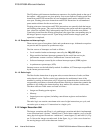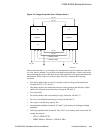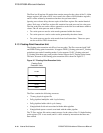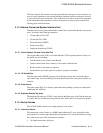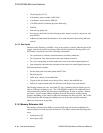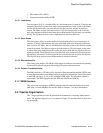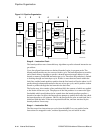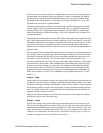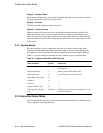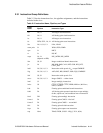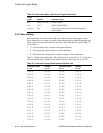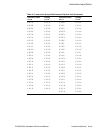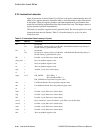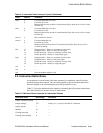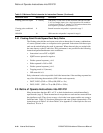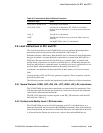
2–16 Internal Architecture
21264/EV68A Hardware Reference Manual
Instruction Issue Rules
Stage 4 — Register Read
Instructions issued from the issue queues read their operands from the integer and float-
ing-point register files and receive bypass data.
Stage 5 — Execute
The Ebox and Fbox pipelines begin execution.
Stage 6 — Dcache Access
Memory reference instructions access the Dcache and data translation buffers. Nor-
mally load instructions access the tag and data arrays while store instructions only
access the tag arrays. Store data is written to the store queue where it is held until the
store instruction is retired. Most integer operate instructions write their register results
in this cycle.
2.2.1 Pipeline Aborts
The abort penalty as given is measured from the cycle after the fetch stage of the
instruction which triggers the abort to the fetch stage of the new target, ignoring any
Ibox pipeline stalls or queuing delay that the triggering instruction might experience.
Table 2–1 lists the timing associated with each common source of pipeline abort.
2.3 Instruction Issue Rules
This section defines instruction classes, the functional unit pipelines to which they are
issued, and their associated latencies.
Table 2–1 Pipeline Abort Delay (GCLK Cycles)
Abort Condition
Penalty
(Cycles) Comments
Branch misprediction 7 Integer or floating-point conditional branch
misprediction.
JSR misprediction 8 Memory format JSR or HW_RET.
Mbox order trap 14 Load-load order or store-load order.
Other Mbox replay traps 13 —
DTB miss 13 —
ITB miss 7 —
Integer arithmetic trap 12 —
Floating-point arithmetic
trap
13+latency Add latency of instruction. See Section 2.3.3 for
instruction latencies.



